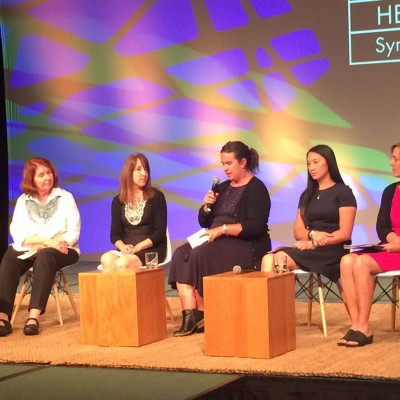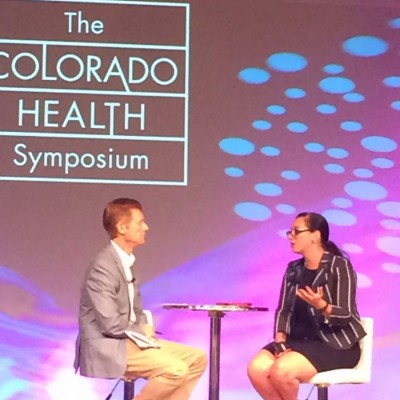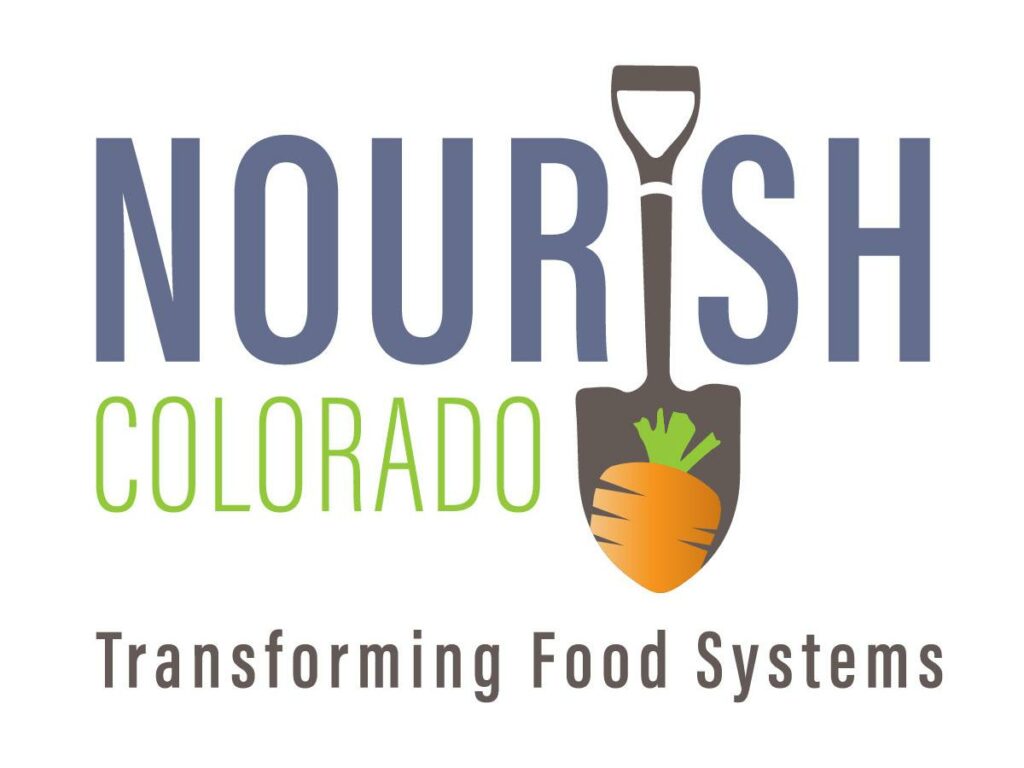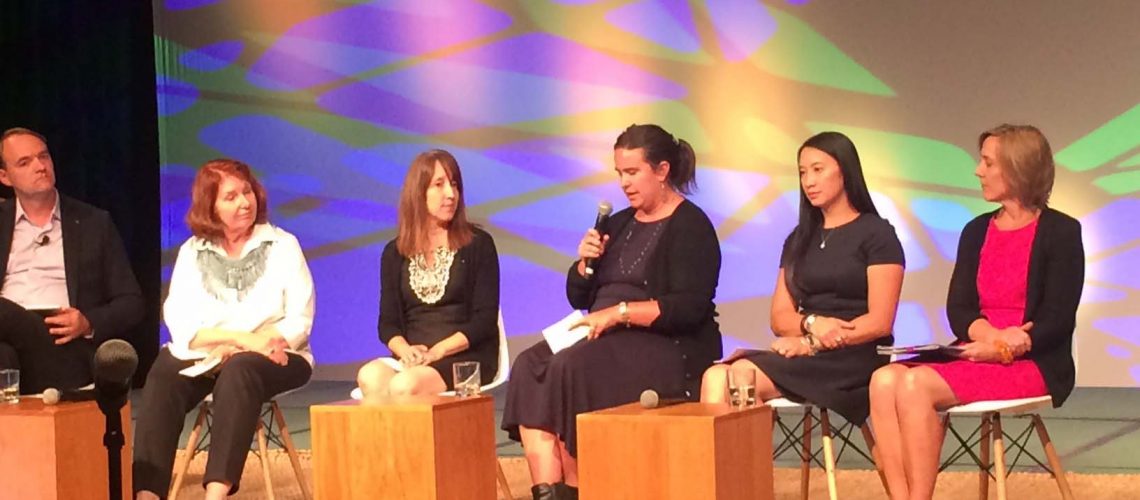By Shepard Nevel, President & CEO, LiveWell Colorado
A few observations from last week’s energizing, informative Colorado Health Symposium, hosted annually by the Colorado Health Foundation and widely acknowledged as the state’s premier conference for health care and health policy leaders.
 The theme this year was “making connections” (connecting systems to health outcomes, connecting communities to well-being, and connecting values to actions). A video greeting by the incoming CEO of the Colorado Health Foundation, Karen McNeil-Miller, set the theme well. Karen said that “in my Colorado, the word inequity is obsolete,” a thought that earned considerable applause (and speaks to the central mission of LiveWell Colorado). Len Nichols, the preternaturally knowledgeable (and thoroughly entertaining) health policy expert and self-described “country economist”, a recurring favorite at the Symposium, kicked things off with the first morning’s plenary panel. Len quoted Reba McEntire: “To succeed in life, you need three things: a wishbone, a backbone and a funny bone.” Amen.
The theme this year was “making connections” (connecting systems to health outcomes, connecting communities to well-being, and connecting values to actions). A video greeting by the incoming CEO of the Colorado Health Foundation, Karen McNeil-Miller, set the theme well. Karen said that “in my Colorado, the word inequity is obsolete,” a thought that earned considerable applause (and speaks to the central mission of LiveWell Colorado). Len Nichols, the preternaturally knowledgeable (and thoroughly entertaining) health policy expert and self-described “country economist”, a recurring favorite at the Symposium, kicked things off with the first morning’s plenary panel. Len quoted Reba McEntire: “To succeed in life, you need three things: a wishbone, a backbone and a funny bone.” Amen.
James Corbett, Senior VP of Community Health and Values Integration at Centura Health, also shared some wisdom, from Don Berwick, former CEO of the Institute for Healthcare Improvement: “When values are strong, rules are unnecessary. When values are week, rules are insufficient.” A valuable thought for any organization.
Mark Fendrick, who crafted the valued-based insurance design concept (think innovative health benefit plans), reminded the audience that 50% of the population generates 3% of total health care costs in the U.S., while the least healthy 5% of the U.S. population generates 50% of total costs. Alexandra Drane, co-founder of the Eliza Corporation, discussed the Vulnerability Index which offers insights on life issues such as caregiving, financial troubles and marital troubles and their impact on employee health. These types of indicators, Alexandra noted, are much more predictive of health problems than traditional measures. Caregivers, in particular, are three times more likely to be vulnerable to health issues, and caregiving can “take as much as 10 years off your life.” Alexandra’s advice: employers who have the resources should think about how they can help their employees with life issues.
Keynote speaker Rob Lustig (crusader against sugar and processed food and author of NYT best-seller Fat Chance) emphasized that different calories are metabolized differently so it’s not just about quantity of calories, it’s about quality. He also declared our nation’s decades-long experiment with processed foods an abysmal failure, and shared some troubling statistics, including: one of out of every four cases of type 2 diabetes is due to sugar consumption. Lustig offered a (rare) word of praise for one player in the processed food industry, crediting Mars, Inc. (which he noted is a privately-held company) for making positive changes.
 Another highlight from the Symposium was Nancy Lublin (pictured at left), a data and social entrepreneur who founded Crisis Text Line (counseling via text messages) that is saving lives with “three active rescues a day.” Lublin noted that unlike other forms of communication and marketing, text messages have a 97% open rate. The three elements of a great data set, Lublin shared, are “volume, velocity and variety.” In a refreshing departure from the traditional debate about “people versus technology,” Lublin sees it this way: Algorithms are making “humans smarter and faster.” Among other insights from Lublin’s presentation and Q&A: African-American and Latino youth text at higher rates; the importance of a clear mission and knowing your market (“we’re here for the texters and the counselors, we’re not here for the funders and we’re not here for the government”), and, based on their data of crisis texts from communities such as Palo Alto, helicopter parents really need to ease up on their kids.
Another highlight from the Symposium was Nancy Lublin (pictured at left), a data and social entrepreneur who founded Crisis Text Line (counseling via text messages) that is saving lives with “three active rescues a day.” Lublin noted that unlike other forms of communication and marketing, text messages have a 97% open rate. The three elements of a great data set, Lublin shared, are “volume, velocity and variety.” In a refreshing departure from the traditional debate about “people versus technology,” Lublin sees it this way: Algorithms are making “humans smarter and faster.” Among other insights from Lublin’s presentation and Q&A: African-American and Latino youth text at higher rates; the importance of a clear mission and knowing your market (“we’re here for the texters and the counselors, we’re not here for the funders and we’re not here for the government”), and, based on their data of crisis texts from communities such as Palo Alto, helicopter parents really need to ease up on their kids.
A terrific breakout session on community health featured The BUILD Health Challenge, an innovative partnership of five funders—Colorado Health Foundation, de Beaumont Foundation, Kresge Foundation, Robert Wood Johnson Foundation, and The Advisory Board Company—that are investing in 18 communities nationally, including three in Colorado. The BUILD Health Challenge is worth watching and learning from. One of those community partners is YMCA of Pikes Peak Region/LiveWell Colorado Springs. Kudos to Mina Liebert and Aubrey Day who did a great job as part of this panel discussion (pictured at top-right).
The Symposium ended on a strong note with Elizabeth Rider, an expert on relationship-centered care from Boston Children’s Hospital and Harvard Medical School. Her terrific remarks focused on a powerful message that is too often underappreciated: “Communication is a core clinical skill.”
To see many of these presentations (and more) online, go to http://www.coloradohealth.org/healthsymposium/.

